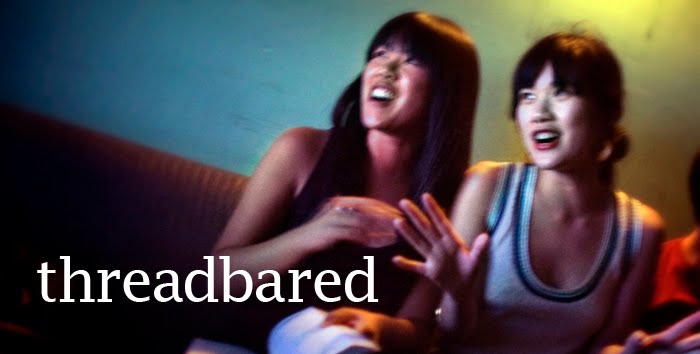 Naomi Campbell rightly argues that the all-black Italian Vogue was an inadequate gesture: "That made some noise but, unfortunately, we are the same as before. People, in the panic of recession, don't dare to put a girl of color in their campaign, full stop."
Naomi Campbell rightly argues that the all-black Italian Vogue was an inadequate gesture: "That made some noise but, unfortunately, we are the same as before. People, in the panic of recession, don't dare to put a girl of color in their campaign, full stop."At Sepia Mutiny, contributor Phillygrrl recounts the value given to lighter skin among South Asians in "Dark is Beautiful, Indeed." She posts the efforts of a new organization called Women of Worth and its "Dark is Beautiful” campaign: "The organization purports to erase the notion that 'the beauty and value of an Indian woman is determined by the fairness of her skin.'" (via Racialicious)
For The New York Times, Catherine St. Louis notes that "Black Hair [Is] Still Tangled in Politics." From the article: “'For black women, you’re damned if you do, damned if you don’t,' said Ingrid Banks, an associate professor of black studies at the University of California at Santa Barbara. 'If you’ve got straight hair, you’re pegged as selling out. If you don’t straighten your hair,' she said, 'you’re seen as not practicing appropriate grooming practices.' Anyone who thought such preconceptions were outdated would have been reminded otherwise by some negative reactions to the president’s 11-year-old daughter, Malia Obama, who wore her hair in twists while in Rome this summer. Commenters on the conservative blog Free Republic attacked her as unfit to represent America for stepping out unstraightened." The New York Times also features an interactive gallery of nine African American women discussing their hair, and Jezebel "combs through" the issue.
Afrobella sorts out her thoughts about Tyra Bank's National Real Hair Day episode, hot on the heels of the multiple stories recently published about black hair preceding the nationwide release of Chris Rock's documentary Good Hair, in which she appeared without her weave. "Maybe, despite the hype, Tyra wasn’t yet ready. And that I can almost respect. Going natural shouldn’t be a fad — it takes dedication, committment, and courage. Maybe this was a baby step for Tyra." Afrobella and her commenters parse the significance of real as opposed to natural hair, and the implications that follow. (via Racialicious)
Make Fetch Happen thoughtfully scans the Vogue interview with Beverly Johnson, discussing her experience as Vogue's first black cover model.



